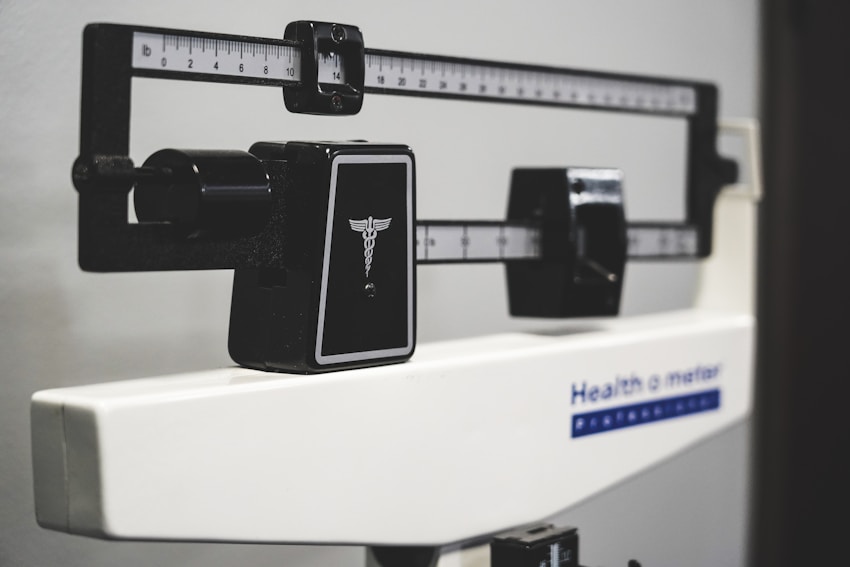
A ketogenic diet is a popular low-carb, high-fat diet. It offers many health benefits. In fact, several studies have shown its potential benefits for weight loss and health improvement. It may even have benefits against Alzheimer’s disease, cancer, diabetes, and epilepsy.
Here we give you everything about the keto diet that a beginner needs to know.
What Is Keto Diet?
The keto diet has many similarities with the Atkins and low-carb diets. As a low-carb, high-fat diet, it involves a drastic reduction of your carb intake and an increase of fat intake. But don’t worry. There are a wide variety of healthy, filling, and tasty keto diet foods.
Reducing your carb intake puts your body into a metabolic state known as ketosis. During this state, your body uses fat for energy instead of carbohydrates and turns fat into ketones in the liver. With that, ketones can also supply energy for the brain.
This type of diet may result in enormous reductions in blood sugar and insulin levels, which, along with the increased ketones, can offer several potential health benefits.
Different Types of Keto Diets
Different types of keto diets include the following:
Standard ketogenic diet. This diet involves only 5% carbs, 20% protein, and 75% fat.
High-protein keto diet. Basically, this type of keto diet involves more protein, having a ratio of 5% carbs, 35% protein, and 60% fat.
Targeted keto diet. In this diet, you are allowed to add carbs around workouts.
Cyclical ketogenic diet. This type of keto diet involves higher-carb refeed periods, such as 2 high-carb days after 5 ketogenic days.
However, only the first two keto diets, standard and high-protein, have been extensively studied; the former is the most recommended type. The other two keto diets, cyclical and targeted, are more advanced methods; they are primarily used by athletes or bodybuilders.
Benefits of a Keto Diet
Ketogenic Diets for Weight Loss
A keto diet is an effective way to achieve weight loss and reduced risk factors for disease. As a matter of fact, a study demonstrated that this diet is far superior to other common low-fat diets.
Moreover, a keto diet is so filling that you can still achieve weight loss without necessarily tracking your food intake.
A randomized trial demonstrated that those who are on a keto diet lost 2.2 times more weight and experienced an improved Triglyceride and HDL cholesterol levels as compared with those who are on a calorie-restricted low-fat diet.
In addition, a Randomized Controlled Trial by Dyson et al. showed that people on the keto diet lost 3 times more weight as compared with those on the Diabetes UK-recommended diet.
A keto diet is superior to a low-fat diet because an increased protein intake is associated with numerous health benefits. An improved insulin sensitivity, increased ketones, and lower blood sugar levels brought about by this diet may also play a key role.
Keto Diets for Diabetes and Prediabetes
Diabetes is associated with impaired insulin function, high blood sugar, and changes in metabolism.
Keto diets can help you boost insulin sensitivity and reduce excess fat, which is closely linked to metabolic syndrome, prediabetes, and type 2 diabetes.
A comparative study by Boden et al. demonstrated that keto diets can massively improve insulin sensitivity.
Another study in 21 people with type 2 diabetes demonstrated that 7 of the participants were able to stop taking their diabetes medications.
In yet another study by Westman et al., it was shown that people on the keto diet lost 24.4 pounds compared to 15.2 pounds in those on a higher-carb diet.
Keto Diet for Improved Mental Focus
Since ketones are a great source of fuel for the brain, many people use keto diet to improve mental performance. You avoid big spikes in blood sugar when you lower your carb intake, which can result in improved concentration and focus. In addition, studies have also demonstrated that fatty acid intake can also be beneficial to our brain’s function.
Other Potential Health Benefits of Keto Diets
Originally, keto diets function as a tool for treating neurological diseases, including Alzheimer's disease and epilepsy. But studies have shown that this diet has potential benefits for various health conditions.
Alzheimer’s disease. The keto diet can potentially reduce Alzheimer’s disease symptoms and even slow its progression.
Epilepsy. Research has demonstrated that this diet can massively reduce seizures in epileptic children.
Parkinson’s disease. This diet has been shown to help improve symptoms of Parkinson’s disease.
Heart disease. The keto diet can potentially improve risk factors for heart diseases, including HDL cholesterol levels, blood pressure, blood sugar, and body fat.
Cancer. This diet is also being used today to slow tumor growth and treat several types of cancer.
Polycystic ovary syndrome. This diet has been shown to help reduce insulin levels, which may play a key role in PCOS.
Brain injuries. An animal study by Prins et al. demonstrated that a keto diet can potentially reduce concussions and aid recovery after brain injury.
Acne. Eating less sugar and processed foods and reduced insulin levels may help improve acne.
However, note that studies in many of these areas are far from conclusive. Further human studies are necessary to elucidate the diet’s health benefits.
What are the Foods to Eat and Avoid on a Keto Diet?
When on a keto diet, any high-carb food should be limited. Here is a list of foods to eat and foods that need to be reduced or eliminated.

A 1-Week Keto Diet Plan for Beginners
Here is a 1-week keto diet plan sample to help you get started.

As you can see, there are a wide variety of tasty, filling, and nutritious meals on a keto diet. Each type of meat and vegetables provides different nutrients and health benefits so always try to rotate them over the long term.
Healthy Keto Diet Snacks
Here are also some healthy keto-friendly snacks in case you get hungry between meals.
- Cheese
- Cheese with olives
- Hard-boiled eggs
- Fatty fish or meat
- A handful of seeds or nuts
- 90% dark chocolate
- Low-carb milkshake with cocoa powder and almond milk
- Full-fat yogurt with cocoa powder and nut butter
- Strawberries and cream
- Celery with guacamole and salsa
- Smaller portions of leftover meals
Eating Out while on a Keto Diet
Most restaurants also make keto-friendly meals, like some kind of fish- or meat-based dish. You can order that, and instead of having high-carb food, you can ask for extra vegetables.
Egg-based meals, such as an omelet or eggs and bacon, and bun-less burgers are also a great option.
Instead of ordering fries, you can ask for vegetables and add extra avocado, bacon, eggs, or cheese.
For dessert, you can order berries with cream or a mixed cheese board.
Keto Diet Side Effects
The keto diet is absolutely safe for healthy individuals but you may experience some initial side effects, usually referred to as the keto flu, while your body adapts.
Side effects, such as decreased exercise performance, increased hunger, poor energy and mental function, nausea, digestive discomfort, and sleep issues, usually last within a few days
How to Minimize Them?
You can actually minimize the side effects by trying a regular low-carb diet for the first few weeks to enable your body to burn more fat before you fully eliminate carbs.
This diet can also affect the water and mineral balance of your body. You can take care of that by taking mineral supplements or adding extra salt to your meals.
So in the beginning, avoid limiting calories too much and eat until you’re full. With keto diet, you’ll lose weight without deliberately restricting your calorie intake.
Supplements for a Keto Diet
Although not required, supplements can be useful when you’re on a keto diet.
Caffeine. It can have benefits for fat loss, performance, and energy.
Exogenous ketones. It can potentially increase your body’s ketone levels.
MCT oil. MCT oil helps increase ketone levels and provides energy. Adding it to your drinks or yogurt can be helpful.
Minerals. When you’re starting out with a keto diet, adding salt and other minerals can be important due to changes in water and mineral balance.
Whey. Whey protein helps increase your protein intake.
Creatine. It has numerous benefits for performance and health. Combining a keto diet with exercise can be absolutely helpful.
Conclusion
There's a lot to take in when starting a new diet or exercise program. Don't get frustrated or overwhelmed. Remember the old saying "A journey of 1000 miles begins with a single step."
Pick where you are going to start and just change one thing. Then add another one thing. And then another and another and another until you master it. You can do it!
Here's to the journey...

READY TO GIVE KETO A TRY? WAIT!
You are not being told about many of the most important keto breakthroughs being discovered by leading doctors and medical research centers.
There’s no big conspiracy.
It’s just that these breakthroughs usually don’t get much publicity.
That’s because they’re reported in medical journals intended for doctors such as The New England Journal of Medicine… The Journal of the American Medical Association… Lancet… The American Heart Journal… among many others.
Or; in some cases, these discoveries are made in prestigious health centers in other parts of the world, and receive little or no coverage in the US media.
In still other cases, highly respected medical doctors uncover these breakthroughs in clinical studies in their own private practices. They report their findings to professional medical societies, but these discoveries often escape the notice of the mass media.
All of this leaves gaping holes in the health information you should be getting. Yet these “under-reported” discoveries can be of tremendous importance to you and those you love.
That’s why we created My Health G.O.A.T. (Greatest Of All Time).Until My Health G.O.A.T. came along, if you wanted to try to keep on top of new keto developments and scientific keto breakthroughs, you would have to subscribe to a shopping cart full of professional medical journals and newsletters.
And you’d have to spend a king’s ransom for the privilege!
You might also have to get a medical degree to understand many of the articles. But now that’s changed, thanks to My Health G.O.A.T.
Here are our top 12 articles you can read right now that will help give you a shortcut to success during your keto journey to weight loss:













